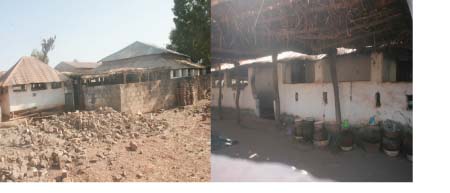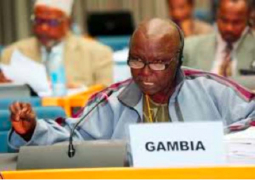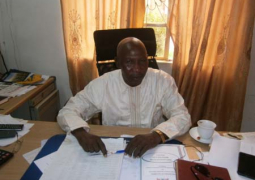
The
National Centre for Arts and Culture (NCAC) has billed a mosque in Sami
Pachonki for the Islamic Scientific Educational Cultural Organization (ISECO)
list in the interest of documenting historical authenticity and adding
outstanding contribution to knowledge, learning and input in Islamic and human
cultures in general.
Located
in Sami Pachonki, Central River Region, the old mosque was built in the 1840s.
Though, the over 173 year-old structure might not be the oldest, it is one of
the oldest in The Gambia that still retains its architectural designs since
construction till date.
The
mosque, as narrated by Hassoum Ceesay, a historian and also the director
general of the National Centre for Arts and Culture, the Sami Pachonki mosque
could date back to the 1840s and that its uniqueness and standing structure is
just amazing.
The
architecture, he explained, is made out of mud, which definitely shows that the
mosque is quite old.
“Secondly, the pillars both inside and outside
supporting the mosque are architectural works. Thirdly, the use of wood
materials for the rafters and as well as the décor are all made from woods and
never changed till date.”
Establishing
more facts about the mosque, Ceesay maintained that a historian in the village
- Oustaz Ceesay, who confirmed that from the evidence passed on to him by his
ancestors, the mosque was consecrated in 1848. “Definitely, it was founded in
1840 in Sami Pachonki in Sami District but became use in 1848.”
“Looking
at the architecture and the fact that it is still in use and the functionality
also, we think it should be of interest to ISESCO for them to consider and
accept it among the sites in The Gambia which contribute to Islamic history and
heritage,” he added.
He
explained that NCAC under the Ministry of Tourism and Culture (MoTC) is not
only concentrating on Sami Pachonki mosque, but that there are still other
mosques of such in Tobawoli, Sutukoba and somewhere in Niumi that are over
hundred years old that could be considered for inclusion in Islamic Heritage
Sites.
Meanwhile,
the mosque meets all requirements that can make it be enlisted into ISESCO for
it to derive other benefits from Islamic Scientific Educational Cultural
Organisation like others.
“Since
the mosque was consecrated from 1848 to date, the worshippers in the mosque have
been led by fifteen imams as documented by the community while the mosque
having located behind the graveyard for the past imams of the mosque and as
well as the alkalolu of the village “a sign that they have respect for their
imams,” he added.
Meanwhile,
Islamic Scientific Educational Cultural Organisation (ISESCO) brings together
all members of OIC and they are to develop a list of sites that have special
relevance to Islamic history and The Gambia has been approached to identify
heritage sites in the country which have a link with Islam.



